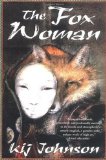It’s a strange omission in modern fantasy. Religion, that is. If religion does play a part in a modern fantasy, it’s because there’s some war between beings so powerful that we may as well call them gods. Sure there are angels and demons, but they’ve been stripped of their religious origins. The Soulkeepers, as well as scoring a refreshing two on the Fantasy Novelist’s Exam (the lowest score to date), allows that if you add magic to the modern world, then it only makes sense to acknowledge the belief systems already here.
Our main guy is Jacob, an Oahu boy, whose father was killed in Afghanistan. His mother disappears, and his dreams about the day she vanished are pretty strange. The result of his head being cracked open, obviously. Only the dreams don’t stop. Of course we know better than Jacob does that the memories and visions are real, and it’s a little annoying how long it takes him to accept the seriously weird stuff. But is that fair? We as readers know we’re holding a fantasy novel; Jacob has no such perspective. Wouldn’t you resist the truth? Still, I was ready for him to get it long before he did.
With his mother gone Jacob finds himself in a quiet midwestern town living with relatives he didn’t know he had, and doesn’t particularly like. He’s shoveled into a school that doesn’t welcome outsiders, complete with racist bullies (Jacob’s mom was Chinese) and to top it off the lady across the highway from where he lives is a (totally hot) spooky individual. Jacob’s anger puts him in her debt. You know that’s going to have repercussions.
Although Christianity (with a nod here and there to other belief systems) is a big part of this book, Jacob is not a spiritual guy; his new family’s weekly church expedition is tiresome and the family gathering that follows is worse. The only relief he has is his new best friend Malini, also an outsider. It is obvious to both kids that they are made for each other, and I thank the author for not teasing us along with a “will they/won’t they” plot line. Sure, the relationship has its bumps, but there are no contrived obstacles designed to milk suspense out of the situation. The bumps serve the plot.
There were a couple of times I thought the religion aspect was about to get heavy-handed. There are some Bible stories we’re asked to take literally, even while we meet a medicine woman in the rain forest. In the end though, the story avoids dogmatism and asks us only to believe in good and evil. To vaguely quote the book, “It’s not about who’s right, but about what’s right.”
We can root for Jacob to choose good but when he loses his cool it’s easy to understand why. He does some pretty bad things, bad enough to put him in a spot where the weight of those deeds promises to crush him. Only two things save him: The help of his friends, and, even more important, someone who needs his help. Jacob does a lot better when there’s someone who needs him.
That’s what I liked about this story. Jacob is far from perfect. He’s got some pretty nasty foes, but none that can destroy him the way he can destroy himself (…well, OK, eventually he meets some guys who could really mess him up, and he’s totally unprepared for the confrontation. But still…). Despite his ugly streak I was pulling for Jacob. When things go wrong, there’s no one else you’d rather have watching your back.
The lady across the street? In her words, “the closest thing to evil nearby”, and now his tutor. While the world may be black and white underneath, the people in it are lovely shades of gray.
Note: if you use the above link to somehow pay for this free book (or a Kindle, or a new car), I get a kickback.















